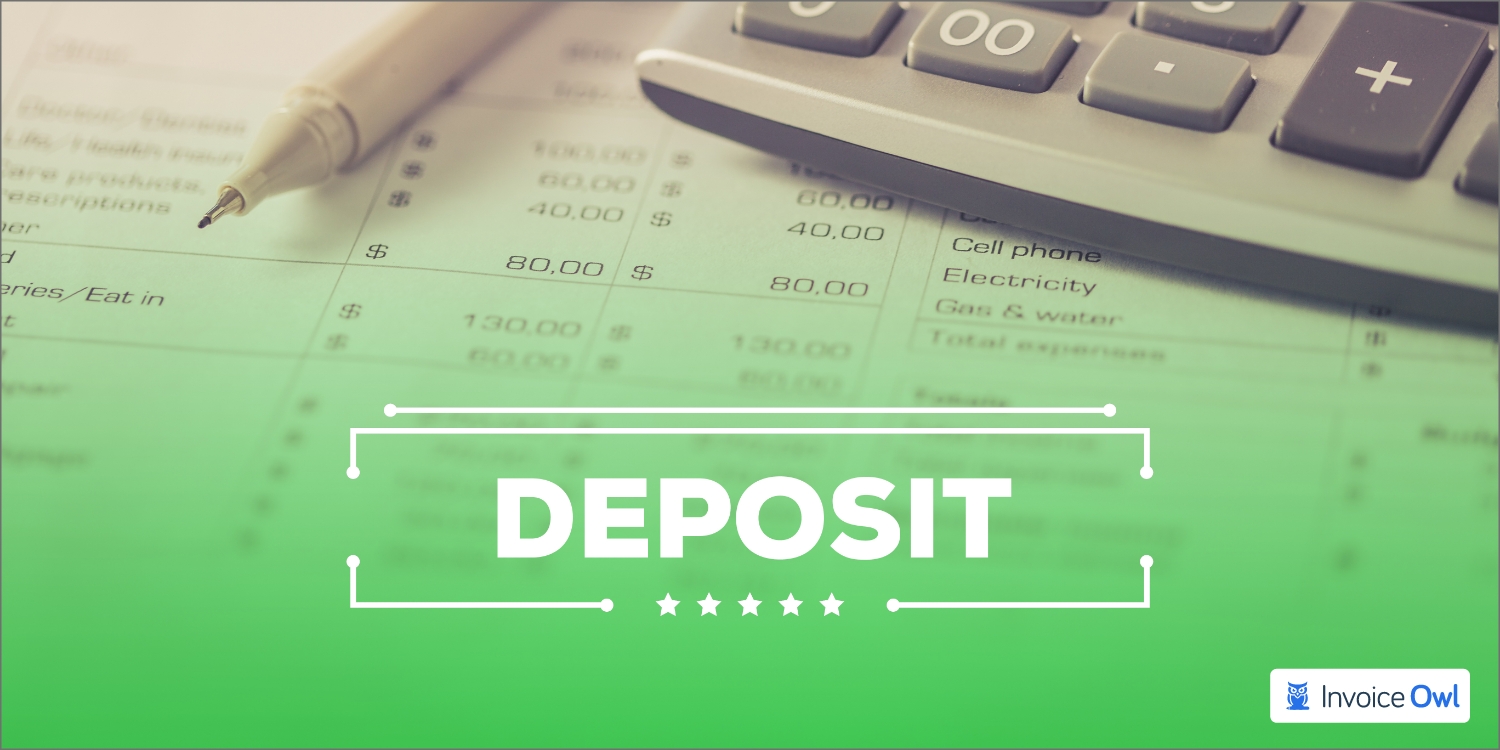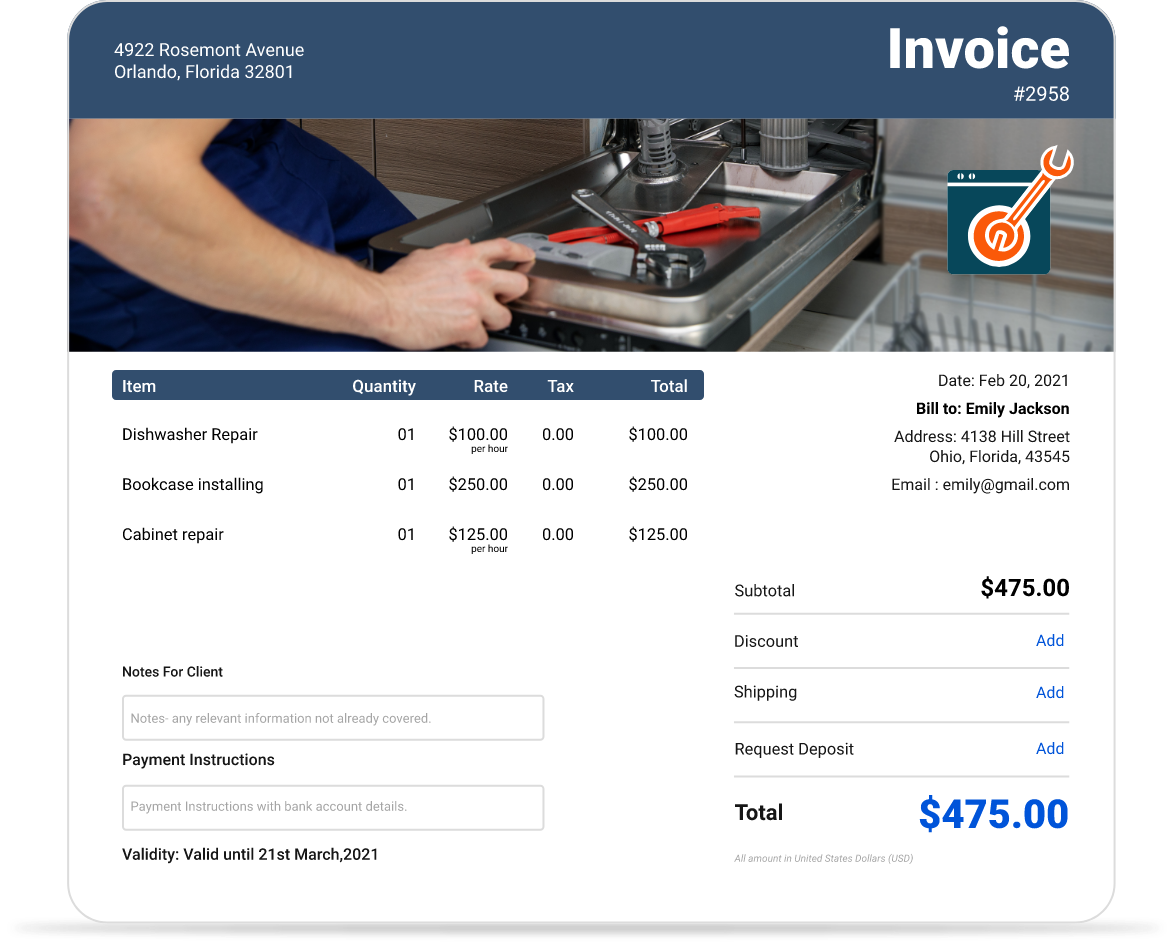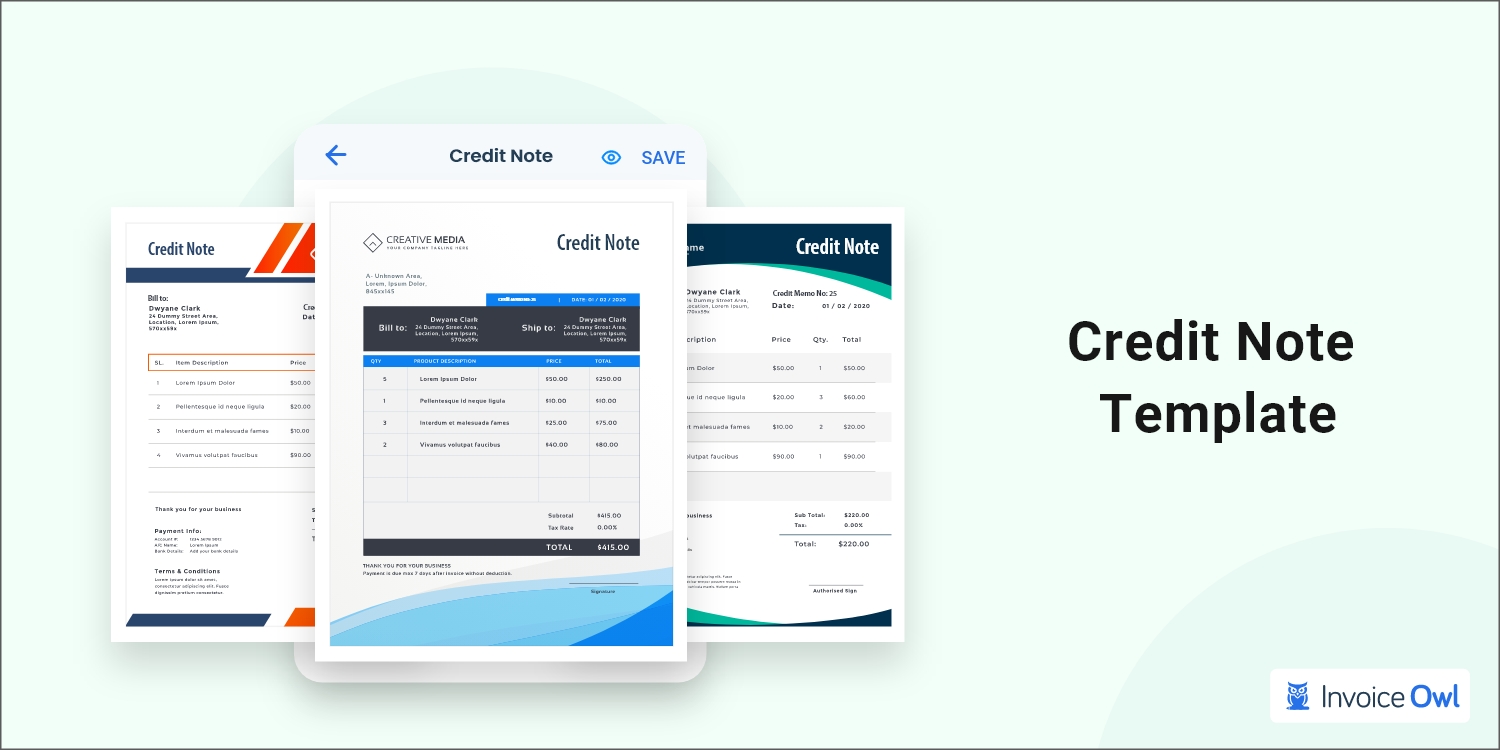
Key Takeaways
- 01Credit note templates save time, ensure consistency, and maintain professionalism in your business
- 02Use credit notes for invoice errors, order changes, or as special rewards for loyal customers
- 03A proper credit note must include company details, memo specifics, reason for issuance, and final amounts
- 04Professional invoicing tools like InvoiceOwl help reduce errors and streamline credit note creation
- 05Credit notes serve as better alternatives to refunds, helping track operations without business losses
Credit notes are commercial documents a business gives to its clients. A credit note serves various purposes. It helps a business prevent technical errors and serves as proof of the transaction.
If you want to avoid financial data errors, know about the mistakes in financial statements, run your business in an orderly manner, and show clients that your business genuinely cares about them, putting an effective credit memo system into action is necessary.
Creating a reusable credit note template always comes in handy. It helps you save time and energy by writing new credit memos, staying consistent, looking professional, and is low-effort.
We will help you build a whole credit note structure by providing free templates, tips on making credit notes, and other useful information. If creating a successful credit note system sounds intimidating, you have come to the right place. Continue reading to know better:
What is a Credit Note Template?
A template is a general structure for creating something. A credit note template is a mold for generating credit memos for your business. It helps you lay out the structure for all your business transactions that require a credit memo. Therefore, a credit note template is a pre-saved document.
The following information will help you realize the importance of a credit memo template:
When Should You Use a Credit Note Template?
You can use your credit note template in several cases. Here is a list of instances where one can utilize credit templates:
1. Mistake in invoice
The primary cause of issuing a credit note is a fault in the generated invoice. Sometimes, you may mistakenly generate incorrect invoices.
The invoice amount may be greater than the amount due. In such a case, issuing the client a credit note is feasible. You will have to issue a debit note if the invoice amount is less than the due amount.
Generating the wrong invoices can create a poor impression on your clients, dissuading them from availing of your products/services. Therefore, it is better to ensure that you generate professional invoices.
You can create expert invoices using invoicing software like InvoiceOwl. It helps you make detailed invoices within seconds. In the modern-day world, you do not need to perform each task manually.
Today, with such great invoice tools, you can go completely paperless. Additionally, mistake-free handling of accounts ensures customer satisfaction.
The need to issue a credit note significantly decreases, with the original invoice being error-free. Therefore, you can use InvoiceOwl to prevent accounting errors, waste time and paper, and more.
2. Change in customer order
Sometimes, customers may want to switch the product/service they originally ordered for a new item. If you run a field service business, the client may request certain alterations to the project.
In such situations, issuing a credit note is the easy way out. The client can redeem this credit note for future purchases.
You can eliminate the hassle of changes in customer orders by generating better estimates. The chances of a client requesting last-minute changes are significantly reduced when both the original invoice and estimate are free of discrepancies.
You can use InvoiceOwl not only to generate detailed invoices but also to create a professional estimate. Moreover, you can also use the InvoiceOwl software to make your clients sign documents digitally.
When a buyer signs a contract, it prevents them from requesting significant changes repeatedly. Therefore, you can use InvoiceOwl to avoid last-minute cancellations and no-shows.
3. Special discounts and other reasons
A seller can also issue a credit note to a buyer as a reward. If someone frequently avails of your goods/services, has been associated with your company for a long time, or has placed a massive order, you can issue them a credit note.
This type of credit note is slightly different from the other types of credit notes. While the other credit notes are linked to the original invoice for reference, this note doubles up as a discount coupon (redeemable on any future purchase).
You can also use the credit note template in many other instances, including when your services do not meet the client's expectations, there is a failure/delay in the delivery of items/services, etc.
How do I create a Credit Note?
Your search for tips about creating a comprehensive credit note ends right here. You can use the following informative points to create an effective credit note with ease:
Include relevant company details
Including pertinent business details such as the company name, address with pin code, fax number, phone number, and registration number is a must. Also, you must ensure that the heading clearly states that it is a credit note to avoid confusion. Therefore, the initial text on a credit note should be the business information.
Incorporate the credit note specifics
Each note should have a specific credit note number to help you link the customer to the note. This heading segment should also incorporate other details like the date of issuing the note, its validity, payment terms, customer's name, address, invoice number, and other reference numbers.
Reason for the invoice
While the heading segment incorporates the client, company, and memo details, the main body includes the reason for issuing the memo. The description should comprise the reason for issuing the memo, the amount originally paid by the customer, the adjustments that need to be made, etc.
Concluding paragraph with final amount and other additional remarks
Now that we have created a proper header and main body, it is time to give the credit memo a finishing touch by mentioning the total amount of money (before tax, after tax, and so on). You can attach it to this segment if you need to add further business communications. Adding a company stamp or your signature serves as a mark of authenticity.
Use an invoicing and estimating tool to create the perfect credit note
InvoiceOwl is multipurpose software that generates professional estimates and invoices and helps you prepare personalized credit notes. From invoice templates to debit memo templates, InvoiceOwl assists you in creating all sorts of professional notes with ease. It is also helpful in tracking the amount paid, the refund due, and other billing activities.
Your credit note should follow a proper format, including an appropriate header, mid-body, and footer. The description in each section should allow you to link your client to the credit note easily. Since it is pretty simple to work with, you can also use it on the go.
It is challenging to keep a tab on each client's account manually. But with InvoiceOwl, you can access the account details with a single click.
Hence, if you want to create and manage professional invoices, credit notes, debit memos, and more, InvoiceOwl is the tool for you. It can provide you with the much-needed assistance your business requires.
List of Credit Note Templates
A free credit note template can help you in more ways than one. If you are confused about how to begin writing, these templates will give you the right kickstart:
Credit note template for invoicing error:
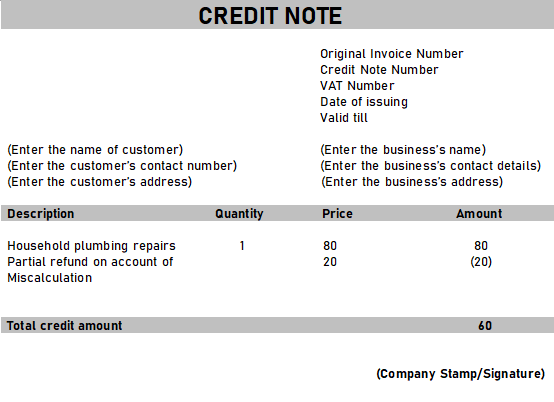
Credit note template for rewarding the customers:
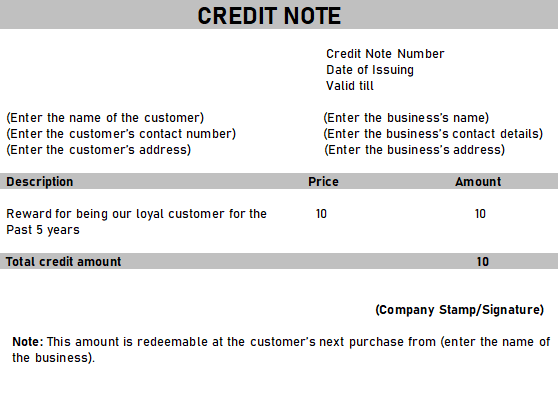
Conclusion
Even though not the same, credit memos are synonymous with refund money; they facilitate the buyer to purchase from the seller without paying for it soon.
Credit notes play an important role in rectifying accounting mistakes made by the seller. It prevents your business from incurring major and minor losses.
Issuing a credit memo makes it compulsory for the buyer to avail of your goods/services. If the credit amount is lower than the price of the product they are willing to buy, they will have to add extra money.
Therefore, by developing this system, businesses do not lose out on any money whatsoever. Credit memos should mandatorily contain important information like client name and contact details, business name and contact details, etc.
If you are puzzled about creating a credit memo, you can refer to our free credit note template mentioned above to get the right kickstart.
The need for a credit note arises mostly out of invoicing mistakes. You can avoid these errors by using professional invoicing and estimating tools.
If you still want to generate credit memos, sometimes as a reward or a thank-you gesture to buyers, you can use the same tool to generate professional-looking credit notes.
Hence, in minutes, invoicing and estimating software can help you create notes, including credit memos and debit memos. It also enables you to avoid billing errors by generating the perfect estimates and invoices!
Create Professional Credit Notes in Seconds
Stop wasting time on manual credit note creation. InvoiceOwl helps you generate professional credit notes, invoices, and estimates effortlessly—all in one place.
Start Your FREE TrialFrequently Asked Questions
You can write an effective credit note by ensuring a proper header, mid-body, and footer. The lack of pertinent information can make a credit note seem incomplete.
A credit note is used to rectify either billing mistakes or changes in orders. You can also use a credit note to reward the client for reaching a certain landmark with your business.
Here is a list of the essential components of a credit note:
- Credit note number
- Invoice number
- Customer name, address, email ID, and phone number
- Business name, address, email ID, phone number, and fax number
- The reason behind issuing the credit note
- The initial amount charged, the amount owed, and other related information, including the taxes
- Any important remark/feedback related to the credit note at the footer
It is important to issue a credit note because it works as a better substitute for a refund. It helps you in tracking the operational processes without causing a loss to your business.
You can create professional credit memo templates using an invoicing and estimating tool such as InvoiceOwl. You can also use this software to generate invoices and estimates within minutes and on the go.
Businesses started using credit notes frequently when computerization took over. With accounting errors reaching their peak, it became necessary to find an alternative to reverse them. Therefore, credit notes serve as a solution to accounting mistakes!



